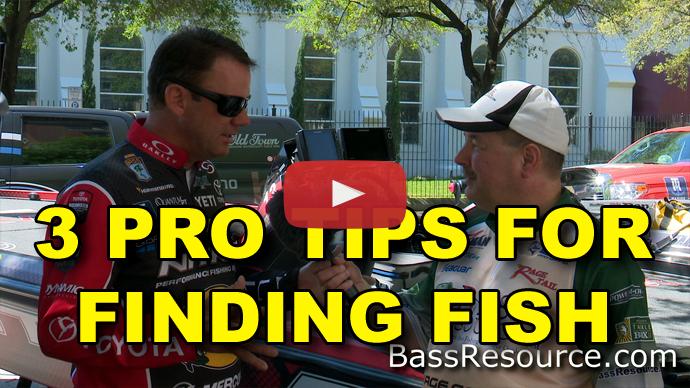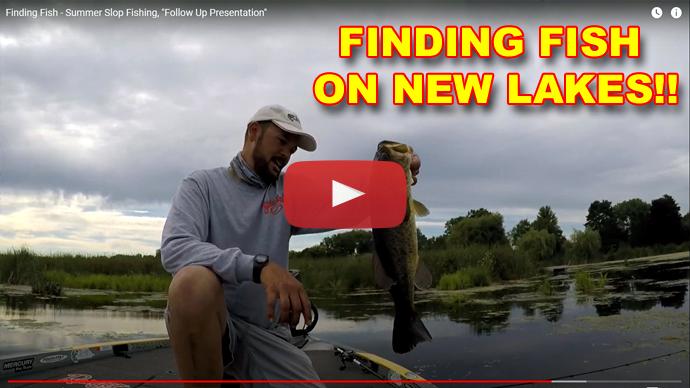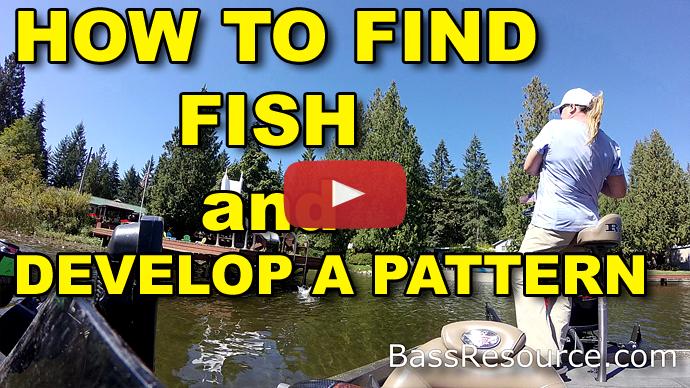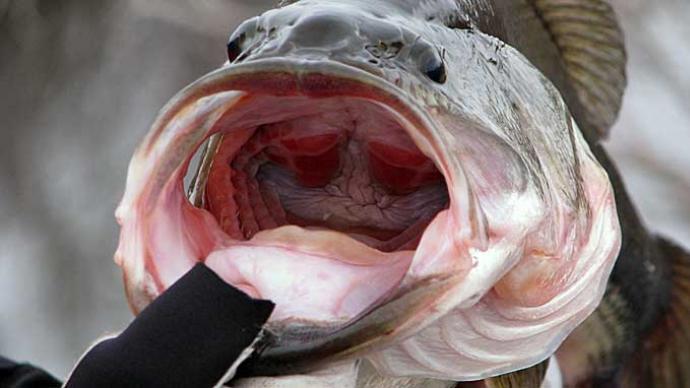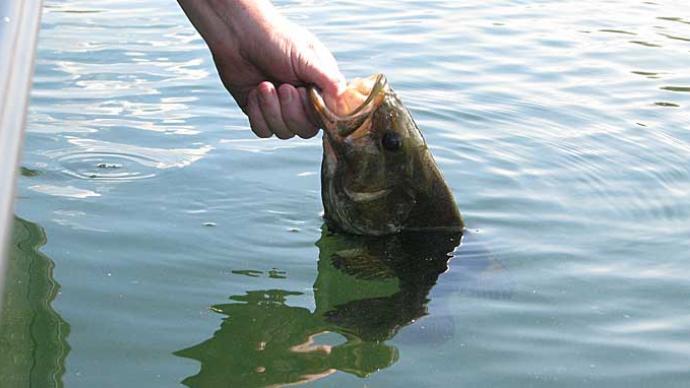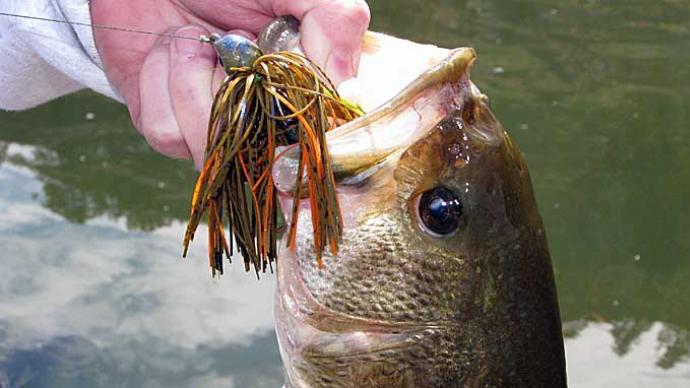I still for about 99 percent of the time, I don't want to talk to anybody. I talk to Faircloth, I talk about techniques and stuff. But I still, I still live up to my name, I’m natural and I don't know of anybody else, really, for sure, that does that. Most guys research pretty hard. I still, man, those bombs I have, I’m telling ya it’s just because I didn't quite figure it out. I just missed, you know, and then until usually in the area that I find, that I won't find enough areas, and then I'll get pounded by a bunch of other Elite guys, and then I have nothing else.
That guys that have advantage of maybe research, they have other stuff if that gets beat up, they usually have other avenues that they can go to and still catch them decent. But sometimes I can't get enough going, and I usually, those are the ones I bomb in.
But usually I start off, you know, water clarity is number one. You see what kind of what it looks like. You know, a lot of times I don't know what a lake looks like until I actually get there in the morning and launch a boat. But water color and clarity, water temperature is big, time a year, weather.
Weather a week before the tournament, that's what I will do. I will, like, a week before the tournament start watching the weather, like, every day, couple times a day, sometimes, I watch winds. And, I don't do any logs and stuff. I just, kind of, remember. A lot of guys do logs, they do log stuff, but if you look at every day, a couple times a day, and I do. Like, when it's a week away from the next tournament, I'll start checking that. And you can check current and water flows if you want. But that just let's you know, kind of, like trade winds and that can make a difference, and some bodies of water. If the wind blows normally from the south, southeast most of the time, that will, kind of, position fish for you. And, if you do get a wind shift, you know, you'll know that it'll scatter them.
Like, if the wind does, if all of a sudden is blowing from the north, or like a opposite, like 80 degrees off, that will also change the way the fish hold on spots. You know, a complete wind shift, a lot of times, will just scatter them. Instead of being here, they might spread out. They might suspend up a little. They might move to the other side, or that's kind of what I do best.
I just try to find, I usually find fish pretty good again. But that's only because I really follow everything, wind directions and the way the spot lays on the lake. But that's helped me a lot, probably because I haven't got help. I've always been, kind of, learned lakes myself, and it allows me to be a really good at finding them. And fishing these little lakes, like Shasta and stuff, it is a small lake compared to most lakes we fish. It's helped me, I mean, all different lakes I fish, it's helped me to, when I do get to a lake now, no matter where I'm at, I know what kind of lake it is, over the years of fishing so many different lakes.
I’m trying to think what else.
(offcamera) Do you start deep or shallow?
(Aaron) It depends on where I’m at, I mean that's what was I was going to get into. The biggest thing I look for, in some lakes it's really hard to find is bait. I mean, some lakes you fish you just don't see bait. It's weird. It's like in the grass, or it's too shallow.
I love lakes when I can start graphing and see balls of shad. That's so easy for me to figure those out. I mean, half the time it's like that where you actually see big balls of shad and you start to see the bigger shad, smaller shad, the white bass, all the different kinds of fish. That's when I kind of get all excited and I start and I kind of know what bass look like.
But most of a lot of the places we go, you just don't see bait. I mean, you’ll see two balls a day and that makes it tough, but that's really like, like me lately, the last few opens we had, you could graph bait, which I mean, that's where the fish were at. I mean, if you just want to fish and start fishing, you wouldn't catch them until that bait was around and then why fish. Why not just graph until you find the bait then fish. It made sense, but that's kind of how Lake Mead's been, either touch, you’ve got shad in it now, so you can actually graph shad.
But as far as like some lakes I go to that you can't always graph them and you can't find them that way, a lot of times you just have to go fishing, which happens the other half of the time where you actually have to throw a bait and catch them. And then you’ve got, a lot of times I don't know what that lake's like and exactly what it's made of, so I got to figure out what they're going to bite and then once I figure out that, I got to make sure that's what they're biting the best. And then once I figure that out, then you have to go fishing.
I do find a lot of my fish back East it's casting a crankbait. I mean, that's really good search bait. Some lakes I throw a spinnerbait, like Lake Mead for instance. My number one search bait is usually’s a spinnerbait. Because if they're not going to hit, at least you'll see them come up on it and turn on. So I can locate them that way, but back East, it seems like the number one - the number one search bait is usually crank, I guess. Square bill, throw it out deeper, you get into the deep divers. This time of year back East, we're doing a lot of deep diving crankbaits. That's really big.
Swimbaits are good in the grass, if you've got a lot of grass in a lake. Spindle worm, Megabass makes a really good one. It's like the original, one of the originals like swimbaits, like the actual, looks just like a Skinny Dipper, but they made it 20 years ago. It's called a Spindle worm or Dippers. You know, the Keitech's are good and a lot of times we're putting those on jig head and or just a Texas rig hook, depending on how snaggy your grass is, but that's a really good search bait for find them in the grass.
This time of year, I imagine they’d probably hit a frog really good. I don't know if you guys kept smallies frogs ever. Not really? I wonder why that is. I mean, I've caught a few on a frog, usually the largemouth, but I'd say I’ve talked to Russ a little bit. The lakes around here it sounds like I'd be throwing a lot of like Dipper type baits, Keitechs and that really works good in the grass, probably top waters, but it's depends on where I'm at. It changes.
If I had my choice, I mean, I know I crank more to find fish when I'm looking for them, and most times it's a square bill. And the time of year and kind of the position the fish, that's another thing I really try to figure out as quick possible is what stage they're in. If they are in post spawn, or if they're in late post spawn, or early post spawn, if they're in summer pattern, and that tells me what size baits they're going to want, if they're going to want a big bait, or a smaller bait, a fast bait, a slow bait, or a suspended bait.
A lot of times the time of year will tell you that, but it’s not necessarily . . . the weather's been wacky, a lot of times you have to pay attention to maybe when they were last spawning or if there's any fish spawning still, or condition of the fish. Whenever I catch a fish I'm paying attention to their mouth and their body to see what shape they're in. Their lips, post spawn will tell you if they're starting getting thicker yet.
When a fish is right after post spawn, he'll be at his thinnest. His mouth is usually where it's usually easiest to tell. And that's when my hook will work really good. But their mouth'll get thin and that's why I’ll occasionally have those flurries of losing fish and stuff is because they'll tear through their lip and it's just their mouth's really weak. That's why in the early spring a lot when they're feeding good, you never lose them because it's like their lips are three times as thick. My hook punches through, it never comes out.
As we're getting to that time of year, that's why this O’Shaughnessy would be killer for that, when the fish have the thin lips. Then you get to a time when you can look at a fish and I'll look at him, I'll check him out, I'll hold him and push on his belly and I'll check his teeth out when I first catch a fish on a lake and check his tail out. You can tell if he's spawned a month ago, or if he's on the up rise, he's starting to get healthier.
You can kind of tell. Their shoulders get a little thicker, their mouths get a little more cleaner looking, a little thicker, healthier. And so I check the fish out a lot. I look at them. That tells me a little bit of the story. Usually, you hear guys tell you like every time they catch a fish, it tells you a story a little bit. Like each fish you catch builds your confidence basically, but each fish you catch also tells you kind of what's going on.
I’ve got to do that back East without hooking too many too, which is really hard. Because you don't want to sit there and catch a bunch and usually I try not to. A lot of guys don't do and there's some guys that still go out there and catch until the last day of practice, but that's not good either for me. That's why it's kind of hard is because most of the time I'm fishing, I'm actually shaking them off. That's tough.
I still love it though. I can't wait until the time the first day of tournament comes. That's when I can let loose and start hooking them. Probably most of you guys are probably tournament guys and I believe in keeping the fish in the water. If you do hook one, especially if it's nice one, I don't want to pull that fish out of the water at all. So if he pulls, I'll let him go. I'll let him just have his way, basically, and then when I get him tired out a little bit. I don't want to stress him out when I hook a fish I know it's a good one.
I know I've caught some of the same fish in the past. Here and there I do catch the same fish again. So if I catch a three, or four, or five, or six-pounder, when a fish pulls, I get it off. I'll even free spool it and let him run. I don't want to stress him. I don't want to like feel like he's getting yanked to the boat and he's getting punished. And when they get in the boat and usually they'll calm down, you get him worn out a little bit and they'll kind of chill and I'll kind of put my hand underneath him and I'll never pick him out of the water. If I had to get my pliers and I'll usually not lip him either, I'll just hold him and get the pliers, or my hand, get the hooks out and just kind of like lay him down and let him go. “Please bite again.” But you see what I’m saying.

